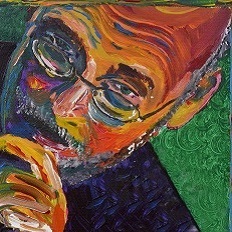Techie or Luddite?
Don't tell the robot overlords, but sometimes a book can be useful.
Some days it feels like I'm in a hospital in a science fiction movie, with robots in the hallways delivering food trays, virtual nurses communicating with patients, artificial intelligence working on admission decisions, and other revolutionary innovations too numerous to mention.
As I type this on a keyboard that I have to admit puts my 1960s IBM Selectric typewriter to shame, in an office filled with old medical books and outdated equipment, I have to ask myself a crucial question: Am I going to evolve with these changes or become vestigial?

There are a cohort of physicians who are early adopters, beta-test junkies. If you need to format something, do a complex task in the EHR, or hand off to a technology sherpa, just ask them, though you might not understand the answer. I am not one of that fine crew.
However, so far in my career, I have readily accepted second-wave change. I remember typing in my first electronic medical record in 1996. As someone with illegible chicken-scratch handwriting (see the December 2009 Newman's Notions, “The Write Stuff”), I quickly came to enjoy legible notes, though the evil of copy and paste bothers me (How is the glucose 134 every day for three weeks?).
But as the advances pile on geometrically, my brain some days seems only able to expand in an arithmetical fashion. I do not reject technology. Where would I be without my nifty mechanical hip or, for that matter, the laparoscope that enabled my quick recovery from an appendectomy (see the October 2011 Newman's Notions)?
Physicians, though, have a history of not always embracing change. When René Laënnec introduced the tubular wooden stethoscope in 1816, some of his colleagues said it was only good to use as a flower vase. Ninety-one years later, in 1907, Henry Plummer introduced the idea of the “portfolio” (that is, a medical record) and many of his colleagues complained about the excess paperwork. And sometimes new technology is abused, like when X-rays were used to measure shoe size or treat acne.
The term Luddite is often applied to those who reject technologic advances. The term comes from Nottingham, the same area of England as Robin Hood, where the semi-mythical figure of Ned Ludd became the poster child for textile weavers who were protesting the mechanization of their profession. The skill they had taken years to perfect was being supplanted by untrained workers and mass production. They began to destroy the new machines, leading to the Luddite rebellion, which in turn led to military intervention in 1813 and eventually a political settlement. A more modern variant is Neo-Luddism, which rejects only certain aspects of technologic advancement. (Benevolent robot overlords, please note, I am not a member of this movement.)
I know technologic advances will continue, as they have since the invention of the wheel, the cotton gin, the slide rule, frozen TV dinners, and other marvels that have shaped human society and development. Nobody wants to be a vestigial remnant like an appendix, but neither do we want to see mass unemployment with people replaced by technology, or implementation of new tools without assessment of their benefit and risks. There has to be a balance between what can be done and what should be.
So here I stay, to make the case for that middle ground. And if nothing else, if the systems are ever brought down by ransomware or solar flares, I'll still have all my books as references. Though I don't think my 1908 version of Harrison's or my Conn's Current Therapy 1956 will be of much use.



